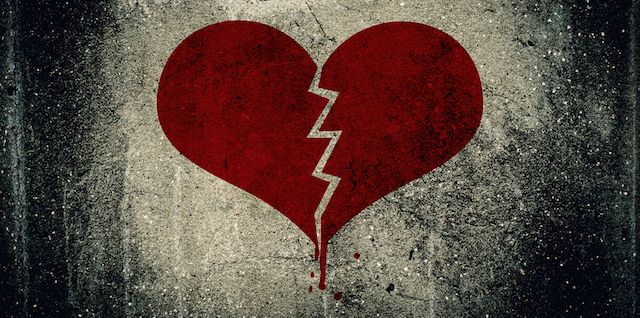
I’ve written about love before, and my words don’t really amount to much compared to how love feels. I’m not alone in writing about love, of course; it’s the stuff of rock and roll, Shakespeare, a thousand poets, romance novels, crime drama plots and notes passed back and forth in eighth-grade English class. A testament to its central place in life in one form or another, love is at the heart of all major religions. I’m not sure if “love is all you need” but it comes close.
Losing an object we love can be upsetting; a favorite cup, a photograph, an old sweater. Losing someone we love is downright heartbreaking; a mother, a father, a child, a friend. In the film The Maltese Falcon, Sydney Greenstreet plays with our sympathies at the prospect of turning-in his gun-toting assistant Wilmar to the police; “I’ve loved him like a son,” he says, mournfully “but then one can always get another son. There’s only one falcon.” The “Fat Man’s” heart’s revealed to be as black as the bird he seeks. Such melodrama works well in cinema, but only dangerous psychopaths feel this way in real life.
When my father’s wife died suddenly, he was crushed; nearly twenty years his junior her death was unexpected. He lived one year longer, but it was a long year of endless grief. Nothing could repair his broken heart; not me, my family, his grandchildren, music, movies or any object. I would try to comfort him by saying things like, “give it time, Dad, it will get easier,” or “focus on gratitude for what you’ve had and have,” but these attempts, though well-intended, were simply words and ultimately misguided. These past few years I’ve learned that a lost loved one leaves a hole that can never be filled. Time makes some difference, but I miss my departed friends and family as much today as ever, and now realize that’s how it will be until I too cross the finish line. Surprise, surprise; I’ve been awakened by my broken heart.
The first teaching of the Buddha was the truth of suffering, and a broken heart qualifies. Life feels tragic because it is. We try, me included, to cordon off our hearts for protection – using humor, logic, sentimentality, sarcasm or anger – but this just results in the suffering of suffering, suffering squared. At long last, I’ve gratefully learned that my broken-open heart keeps suffering direct and simple, places me face-to-face with my deep attachments and the feelings alongside them. The sadness and loneliness I sometimes feel leaves me more vulnerable and exposed, and that in turn makes me more open to the vulnerability and suffering of others.
The Buddha knew that realizing the truth of suffering is the first step on the path to liberation. His teaching was not that we should avoid suffering, but to see it, sit with it, feel our broken hearts and let them open to the broken hearts of others. This is no simple “how-to” self-improvement teaching; it is a life-long journey that is often painful, relentless, moment-to-moment, and yet also mixed with love’s great joy and peace.
Beyond words, fine platitudes and sincere advice, discovering that life is heartbreaking is simply the price we pay for love.